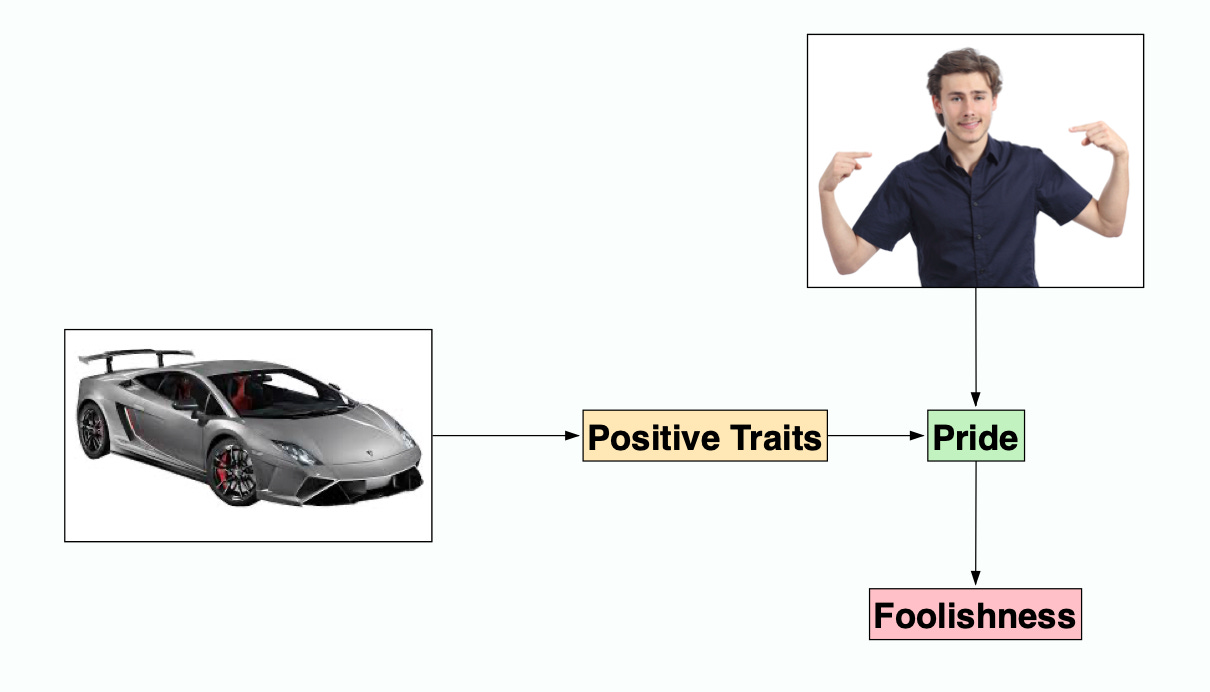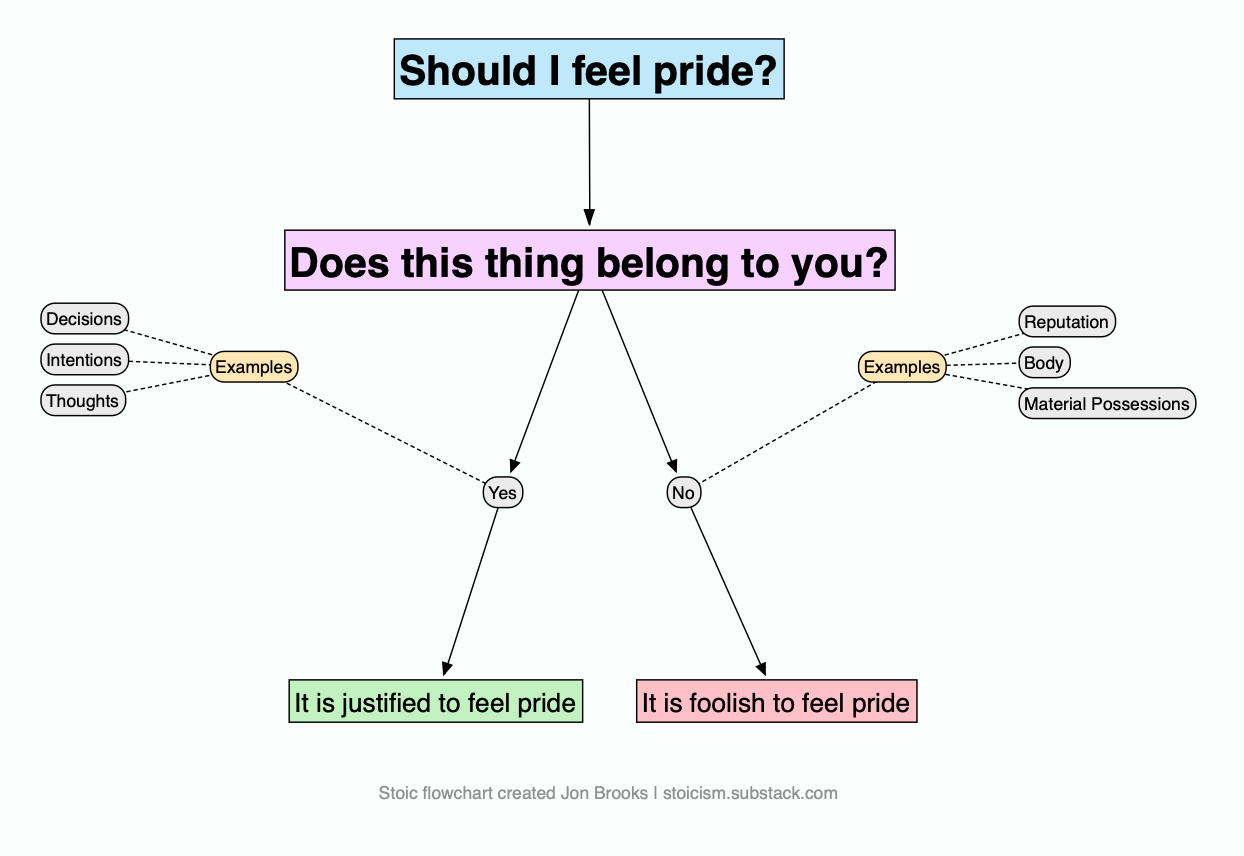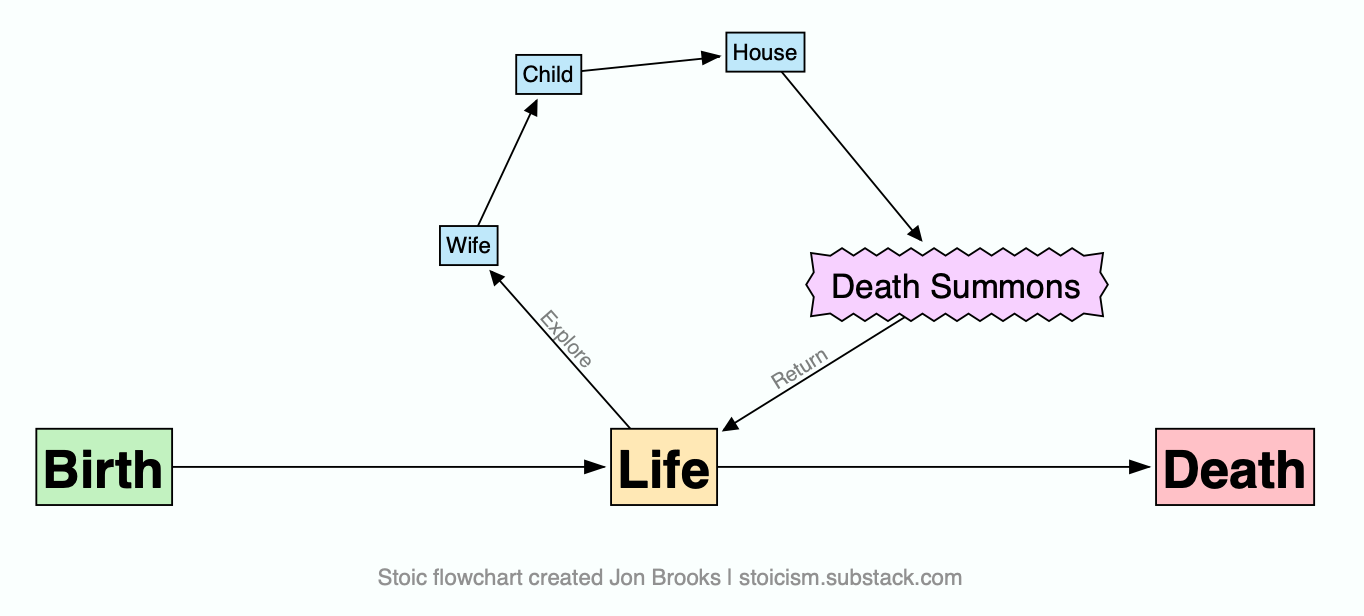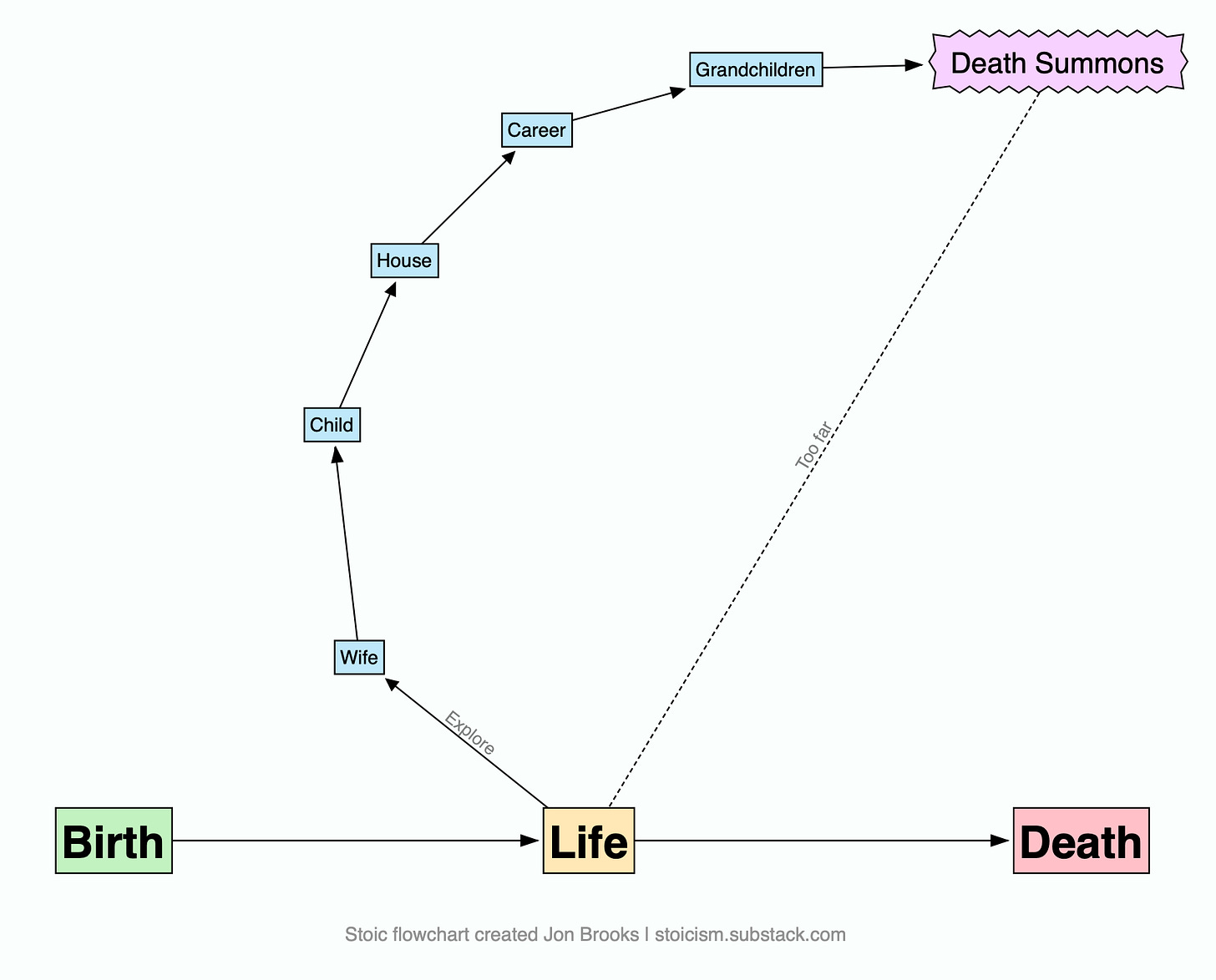🗓 Round-Up: How to Make Plans, Reframing "Bad" Events, Foolish Pride, and Letting Things Go
The Second Month of The Stoic Handbook
Greetings, fellow Stoic ⚔️
We have just finished another month of The Stoic Handbook. 📖
Below I’ll share the four posts I created in September, 2020.
This is a quick overview of the key ideas that were published, so if you’re in a rush or you don’t have time to read each post in detail make sure to read the monthly recaps.
The concepts we will cover today are from Chapter’s 4-7 of Epictetus’ handbook:
How to Make Plans
How to Make Sense of Disturbing Emotions
Foolish vs. Wise Pride
The Value of Remembering Life Won’t Last Forever
At the end of the post you’ll find four Stoic premium audio contemplations.
☀️ How to Make Plans
Whenever planning an action, mentally rehearse what the plan entails. If you are heading out to bathe, picture to yourself the typical scene at the bathhouse – people splashing, pushing, yelling and pinching your clothes. You will complete the act with more composure if you say at the outset, ‘I want a bath, but at the same time I want to keep my will aligned with nature.’ Do it with every act.
— Epictetus
Follow these steps whenever making plans:
I/ Rehearse Your Plan
When you plan to do something, before doing it, mentally rehearse what will happen.
Pay particular attention to the things that may threaten to disturb your peace of mind.
II/ Add Stoic Intention
After you have rehearsed the plan, say the following instruction to yourself:
I want to go through with this plan, but I also want to exercise reason and maintain my peace of mind. This will be impossible if I irrationally go to pieces every time something “unfavourable” happens.
III/ Make Stoic Intention Part of the Plan
Whenever we plan to do something, we must also plan to do that thing wisely.
So we always have two goals:
Follow the plan
Practice virtue while following the plan
If we always contemplate realistic expectations about the frustrating elements of the activity we plan to do, we will be prepared to meet that frustration with tranquility.
⛈ No Event is Disturbing or “Bad”
It is not events that disturb people, it is their judgements concerning them. Death, for example, is nothing frightening, otherwise it would have frightened Socrates. But the judgement that death is frightening – now, that is something to be afraid of.
— Epictetus
Whenever you have the knee jerk reaction of labelling a situation “bad,” bring to mind the following rational Stoic perspective.
I/ The Causal Chain of Emotion
It is not accurate to say, “An event is disturbing or bad.”
Incorrect view:
Whenever someone gets upset, the cause is their judgement about the event, not the event itself.
Correct view:
For example, most people have a fear of death. But we see that the wisest people who ever lived, like Socrates, did not fear death.
This proves it’s our judgement about death that is scary, not the event of death itself.

The wise Stoic understands that unpleasant emotions are not caused by other people or the world, but instead it is their own judgements which disturb them.
II/ The 3 Levels of Wise Interpretation
Ignorant person: Blames others and the world for their misery.

Stoic-in-training: Blames oneself for his misery.

The Wise Person: Never needs to blame themselves or others for his misery but examines and corrects their initial judgement.

🚘 When To Feel Pride Over Things
Don’t pride yourself on any assets but your own. We could put up with a horse if it bragged of its beauty. But don’t you see that when you boast of having a beautiful horse, you are taking credit for the horse’s traits? What quality belongs to you? The intelligent use of impressions.
— Epictetus
If you catch yourself feeling emotions of pride or aggoranuce over things you own, apply the following framework.
I/ Foolish Pride
Do not take pride over things that are not yours.
For example, if a sports car were able to speak and said, "I am proud to be an attractive sports car," then we might tolerate that.

But when you boast about having a beautiful sports car, you are taking credit for traits that are not yours.
To take pride over the traits of the sports car is foolish.

II/ Wise Pride
If it is foolish to take pride over traits that are not my own, what is mine to feel pride about?
The intelligent use of thoughts, actions, perspectives, and intentions.
That's what belongs to you.
If you want to take pride in this, go ahead.

✈️ Remember Everything is Borrowed
If you are a sailor on board a ship that makes port, you may decide to go ashore to bring back water. Along the way you may stop to collect shellfish, or pick greens. But you always have to remember the ship and listen for the captain’s signal to return. When he calls, you have to drop everything, otherwise you could be bound and thrown on board like the livestock.
— Epictetus
I/ Recognise Impermanence
Picture the following analogy:
You are travelling home on an aeroplane and stop halfway for a connecting flight.
While you are at the connecting flight’s airport waiting for your plane, you may go and eat a nice meal and peruse the perfume shops.
But you must not forget about your next flight.
If you forget, you may be stranded in the wrong country until you eventually get deported.

II/ Always Be Ready to Return
Instead of a nice meal and perfume, you have instead picked up a wife and child.
This is great, but when your next flight comes you must be prepared to leave them behind, and be okay with that.

III/ Don’t Wander Too Far
If you are elderly, don’t wander too far around the airport or you won’t make your next flight when it gets called.

🎧 Premium Audio Contemplations 🔒
▫️The Complete Stoic Death Meditation
▫️The Dichotomy of Control Training System
▫️How To Mentally Rehearse Plans
▫️Seneca On The Value of Past Hardship
If you enjoy this newsletter and want to get full access to all past and future posts, subscribe by clicking the button below.







